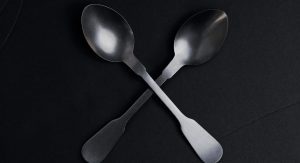As a therapist, I’ve been hearing a theme lately from the majority of my clients: exhaustion. As we grieve the loss we’ve all endured over the last year of the pandemic, people everywhere are reaching a brand new, never really experienced level of exhaustion. Many researchers have coined the terms “pandemic brain” and “quarantine brain” to describe this exhausted haze. “The most common symptoms are forgetfulness, inability to think clearly, feelings of detachment and fatigue, poor task attention, and a general feeling of thoughts being clouded. Brain fog makes it harder to get simple tasks done, and it can even affect children, making it difficult to focus on schoolwork and other tasks.” (Take 5 Daily)
Everyone is experiencing this mental and physical exhaustion but let me show up here today to tell you that if you’re a parent to any number of children at any various ages throughout this pandemic, your “pandemic brain” is at such stressful levels it’s almost comical. How we are continuing to survive all of this is beyond me. But, let me validate for you, that parents are going through a much different experience through this pandemic than any other stage of life. It’s hard. We’re tired. We’re stressed. We’re impatient. We’re irritable. We’re losing it with our kids before they’re even down the stairs in the morning. And it’s the same… day after day after day.
So my goal here today is to tell you a little bit about why this is happening (that’s what you’ll find here in Part One). My second piece will share more about what we can do about this exhaustion. That second piece will probably be called “Part Two” because that’s about all the mental creativity I have nowadays.
There’s this fabulous theory that was developed to focus on the daily struggles of folks dealing with chronic pain challenges: The Spoon Theory. The idea is that every day we all wake up with a certain amount of spoons ready to use throughout our day. Spoons equal energy. So getting out of bed may take away one spoon. Driving to work may take away another spoon. Things like working eight hours may take away three spoons. Extra stressful work days may take away four spoons. Arguing with your partner may take away a spoon. But things like going for a run, spending time outside, eating healthy meals, meditation, a good night sleep, taking our medication, rolling in the grass with our kids can all add spoons. Some days taking a shower may be relaxing and it’ll add a spoon. Other days your kids are banging on the door and you slip on a bath toy and run out of shampoo. That shower takes away a spoon.
The theory was developed to show that folks with chronic pain already start their day off with less spoons than a healthy person might. And going for a walk, which may add a spoon to a healthy person’s day, might actually take away a spoon from someone experiencing chronic pain or illness. We all start our days with a different number of spoons. And each task we try to accomplish throughout the day requires energy, it requires spoons.
We don’t wake up with endless spoons. Let’s say my magic number of spoons per day is 12. If I don’t sleep well and I forget to take my antidepressant at night, I’m losing two spoons. So the next morning when I wake up, I’m already at ten spoons instead of twelve. Meaning, I have less energy (mentally, physically, emotionally, spiritually) to tackle my day. So let’s say I have a hard day with my kiddo, a stressful meeting at work and I get a flat tire on the way home. Those things, plus just normal functioning might leave me at -4 spoons before bed because I already started my day low. So by continuing into the deficit, I may go to bed tonight with now -6 spoons. Meaning I wake up tomorrow with only 6 spoons. But I’m also waking up with the same amount of tasks and interactions that would normally use up my 12 spoons.
I, in no way, intend to diminish chronic pain and illnesses. I myself have two chronic illnesses, so perhaps, I have a little more experience and permission to draw this connection. But what I see happening around us is “pandemic or quarantine brain” turning into a chronic illness.
We’ve been experiencing this for over a year. We’ve been tossing out spoons left and right with little to no time and space to collect more spoons. We as parents can’t go for a walk with a friend in the evening (gain a spoon) because we’re trying to find our kid’s mask in the clean laundry pile so we can drive them to their social distanced soccer game (lose a spoon). We can’t drink a quiet cup of coffee in the morning (gain a spoon) because we are trying to gather our children’s things for online school, or is it in school today? What day is it? What time is it? Where should my children be today? (Lose three spoons). We can’t spend our Saturday cooking a healthy meal while curled up with our favorite book (gain two spoons) because we are doing six loads of laundry we didn’t get to during the week while managing the temper tantrums, losing our cool at our kid which just leads them to lose their cool even more (lose four spoons).
Parents are losing spoons. We are losing spoons so much quicker than we can accumulate them. We are beginning each day at a deficit. The fear we all are enduring: am I healthy? Is my family healthy? Should I get vaccinated? Are numbers going up? Is it safe to have that birthday party? Will grandma be okay? Are our healthcare workers managing? Is my child safe at school? Plus fear of… more mass shootings, political unrest, systemic racism, poverty or unemployment… This fear is exhausting. As a mental health professional, you could not move a muscle for an entire day and I can already tell you: you’re starting with negative spoons.
My goal of this piece is to share with every single parent out there: you’re running low on spoons. You know it. You see it. You feel it. I validate for you that this feels impossible. You as a parent are still running in survival mode, because unlike others in our society, you haven’t had time to process what’s happening around you because you’re keeping small humans alive.
Pay attention to your day. How many spoons do you think you start with? How many spoons does it take to get out of bed or go to work? Does talking to your mother-in-law take away a spoon or help you gain a spoon? What replenishes your spoons? Once you have an idea, use this analogy as a way to take care of you.
“Hey friend, I need to gain a spoon today, is there any way you could meet me for a quick walk outside?”
“You know what friend, I’d love to walk today, but I’m out of spoons. Can we try again next week?”
You don’t have endless spoons. Hold them tightly. Use them wisely. And know that I know: you’re doing the best you can.
In Part Two, I’ll throw more validation your way and we’ll talk about managing expectations as well as practical ways to gain more spoons.
(The Spoon Theory is credited to Christine Miserandino. Check out more from her at www.butyoudontlooksick.com)

















